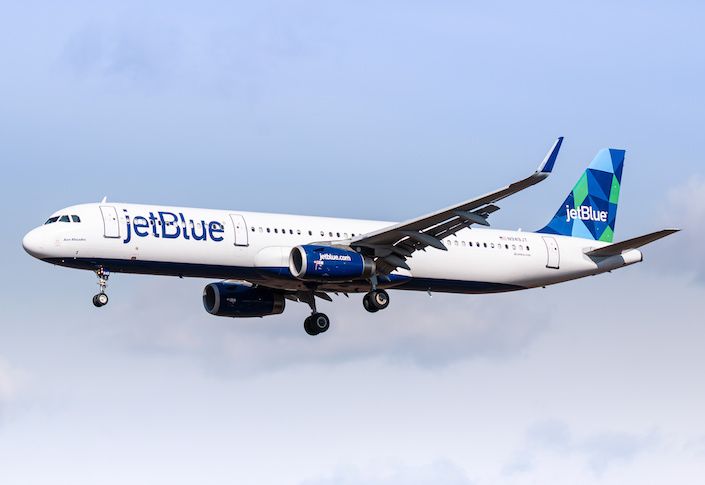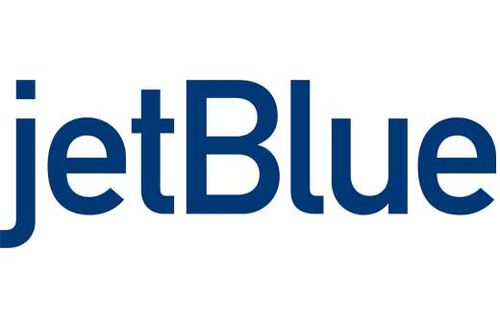Where travel agents earn, learn and save!
News / JetBlue expands use of sustainable aviation fuel as part of its strategy to achieve net-zero carbon emissions by 2040
JetBlue launches new partnership with World Energy and World Fuel Services to fuel flights from its Los Angeles focus city with SAF

July 13 - JetBlue has entered into a new relationship with World Energy and World Fuel Services for sustainable aviation fuel (SAF) at Los Angeles International Airport (LAX). JetBlue’s LAX flights using SAF started this month. This increase in the airline’s usage of SAF includes 1.5 million gallons of blended SAF a year for at least three years, accounting for approximately five percent of JetBlue’s LAX fuel.
Renewable fuel options will play a critical role in the aviation industry’s transition to lower-carbon operations. This is the latest step for JetBlue as the airline works to achieve its ambitious and comprehensive environmental social governance (ESG) targets, including a goal of net-zero carbon emissions by 2040. Last year, JetBlue became the first major U.S. airline to achieve carbon neutrality on all domestic flying, today primarily through carbon offsets while the SAF industry continues to grow, and lower-carbon technologies to reduce direct emissions.
This follows JetBlue’s move to fuel flights from San Francisco International Airport (SFO) with SAF with another fuel provider. World Energy, a zero-now solutions provider for transport and the industry’s first commercial-scale producer of SAF, is supplying JetBlue fuel at LAX from its facility in Paramount, Calif. JetBlue is World Energy’s second U.S. commercial airline partner to incorporate SAF into its regular operations. Made from inedible agricultural waste, World Energy’s SAF is certified by the Roundtable on Sustainable Biomaterials to reduce emissions by up to 80 percent per gallon before being blended with petroleum jet fuel. Delivery of the fuel into LAX will be managed by World Fuel Services, JetBlue’s fuel management company.
JetBlue views robust oversight of key ESG issues as good for business and for generating long-term value, and recognizes that customers expect clean, efficient, and affordable travel. That’s why JetBlue is helping lead the path in sustainable aviation.
LAX is one of JetBlue’s most successful and busiest markets, climbing to 40 flights per day to 23 markets this summer, allowing significant growth opportunities for the airline’s network. With support from Los Angeles World Airports (LAWA), JetBlue plans to embark on meaningful expansion at LAX over the next five years – both domestically and internationally into multiple markets with plans to reach about 70 flights per day by 2025.
JetBlue’s Decarbonization Strategy
Carbon neutrality on its domestic flights is just one way JetBlue is preparing for a changing climate and ensuring a more sustainable business for its crewmembers, customers, shareholders and communities. JetBlue’s carbon reduction efforts focus on decreasing emissions through fuel-efficient operations and aircraft, growing usage of SAF, and supporting the next generation of low-emissions aircraft technologies.
Reduce direct emissions:
• Decrease aircraft emissions 25 percent per available seat mile (ASM) by 2030 from 2015 levels, excluding offsets
Increase usage of sustainable energy:
• Convert 10 percent of total jet fuel to be from blended sustainable aviation fuel (SAF) by 2030
• Convert 40 percent of three main ground service equipment vehicle types to electric by 2025 and 50 percent by 2030
JetBlue’s focus on climate leadership:
JetBlue’s environmental social governance (ESG) strategy focuses on issues that have the potential to impact its business and the industry in the long-term. Customers, crewmembers and community, as well as stakeholders, are key to JetBlue’s climate and sustainability strategy. Demand from these groups for responsible service is one of the motivations to further reduce the airline’s environmental impact. Shareholders, including many crewmembers, have demanded that JetBlue’s ESG strategy benefit stakeholders and the airline’s financial position. Tying ESG to its treasury function, including cash investments and a sustainability-linked loan with some terms dependent on the airline’s ESG scores, further demonstrates JetBlue’s commitment to combat climate change.
JetBlue’s 2019 Environmental Social Governance (ESG) Report identifies key sustainability factors that affect the airline’s business and financial performance. For more information, visit jetblue.com/sustainability.
More Travel News:
UK’s status as most visited destination for US tourists in Europe is threatened by mandatory quarantine, says GlobalData
Percentage of vaccinated travelers continues to build
Skyscanner Weekly Travel Insights
Electric aircraft set to take flight by 2026 under new agreements with United Airlines Ventures, Breakthrough Energy Ventures, Mesa Airlines, Heart Aerospace











